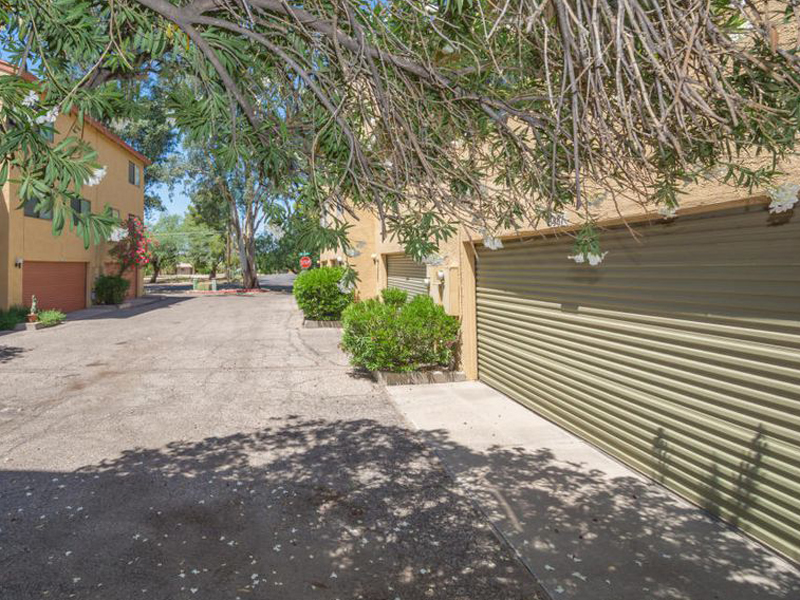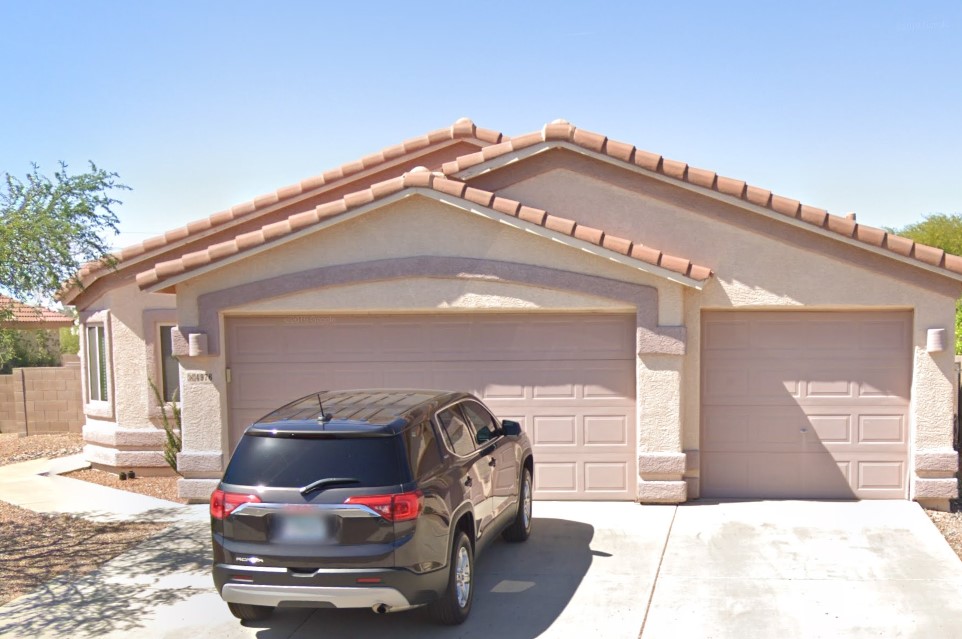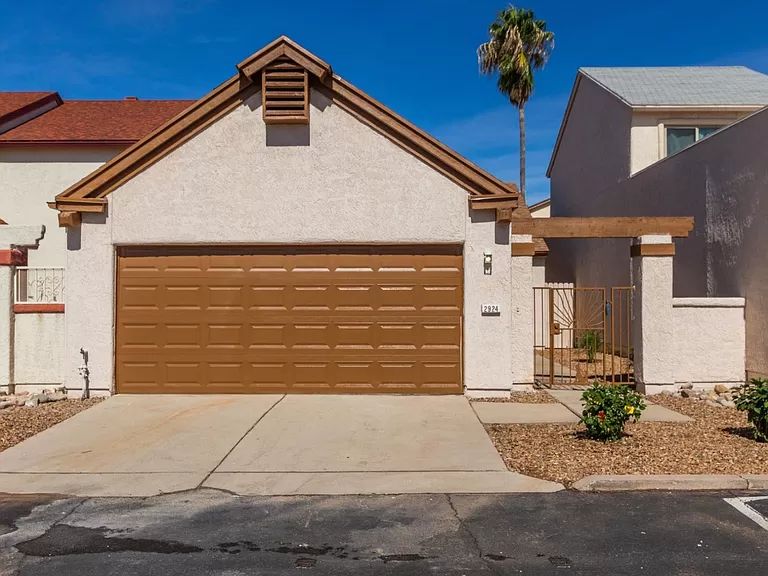Is Your Garage Door Stuck? Here's What to Do Very first
When your garage door won't open up, begin with these important safety checks before trying any fixings. Initially, make sure nobody is standing near the door and that cars are clear of the opening. Try to find evident signs of damage like damaged panels, bent tracks, or hanging wires. If you see a snapped springtime or severely damaged components, stop immediately and call a professional—-- these repair work need specialized devices and knowledge to deal with securely.

Inspect These 6 Points Before Calling a Specialist
Prior to assuming you need expensive repair work, run through this quick analysis list that solves most garage door problems:
-
Power source: Verify the opener is connected in and the outlet is working
-
Remote batteries: Change dead batteries in your push-button control
-
Hands-on lock: Examine if somebody inadvertently involved the hand-operated lock
-
Obstructions: Search for particles blocking the door's path or sensing units
-
Emergency situation launch: Guarantee the red emergency situation cord hasn't been pulled
-
Circuit breaker: Confirm the garage circuit hasn't stumbled
These simple checks resolve roughly 70% of garage door problems without calling for professional treatment.
10 Usual Reasons Your Garage Door Will Not Open Up
Understanding why your garage door opener isn't functioning helps you pick the best remedy. Here are one of the most frequent causes homeowners encounter:
Dead remote batteries represent the easiest fix—-- when batteries pass away, the remote can not send signals to the opener. Power outages or tripped breakers cut electricity to the electric motor. Busted springs stop the door from raising effectively and need immediate specialist attention. Sensing unit misalignment causes safety systems to block door procedure. Track obstructions quit rollers from moving smoothly. Motor overload triggers automated shutoffs when the opener identifies resistance. Restriction switch troubles puzzle the opener about door placement. Wire damage interrupts the training device. Weather-related issues impact door motion during severe temperatures. Part wear from age progressively lowers system performance.
Problem # 1: Dead Remote Batteries
When your wall surface button functions however your remote doesn't, dead batteries are normally the perpetrator. Most garage door remotes use either 3-volt lithium or 12-volt alkaline batteries. Get rid of the back cover of your remote and inspect the battery type. Replace with fresh batteries and test the remote. If it still does not work, you may need to reprogram it to your opener. Consult your opener's handbook for particular reprogramming instructions, as the process differs by maker.
Trouble # 2: Power Supply Issues
Garage door power troubles typically come from loosened connections or stumbled circuits. Inspect that the opener is firmly plugged into its electrical outlet—-- vibration can loosen connections in time. Examine the outlet with another tool to validate it's working. Analyze your home's breaker box for stumbled circuits, specifically if you have actually experienced tornados or power variations. GFCI electrical outlets might have stumbled and need resetting. If the opener has power yet will not react, the concern likely lies somewhere else in the system.
Trouble # 3: Broken or Damaged Springs
Damaged garage door springs are among the most unsafe components to manage. If you hear a loud bang from your garage or notice the door feels very heavy when attempting to lift manually, a spring has actually most likely snapped. Torsion springtimes run flat over the door, while extension springs rest on either side. Never try springtime fixings on your own—-- these elements store significant stress that can cause severe injury or fatality. Specialist replacement typically costs $150-$300 yet guarantees your safety and security.
Problem # 4: Blocked Security Sensing Units
Modern garage doors include security sensors that stop closure when items are detected. These sensors can stop the door from opening if they're dirty, misaligned, or blocked by particles. Tidy sensing unit lenses with a soft cloth and make sure nothing obstructs the unnoticeable beam in between them. Check that sensors are appropriately aligned—-- a lot of have sign lights that reveal link condition. Sensor troubles commonly settle with basic cleaning and modification.
Trouble # 5: Track Obstructions or Damages
Garage door tracks guide rollers as the door moves up and down. Dust, particles, old grease, or little things can jam the system. Examine tracks aesthetically and get rid of any kind of blockages with a brush or towel. Try to find dents, flexes, or bending that might hamper smooth procedure. Small track modifications are possible for convenient house owners, however considerable damages needs specialist repair service to prevent additional issues or security hazards.
Problem # 6: Garage Door Opener Motor Issues
When the garage door motor runs however the door doesn't relocate, a number of problems could be accountable. The motor may be overloaded and shutting off as a safety measure. Equipment wear, specifically in older devices, can protect against proper operation. Chain or belt drive issues affect power transmission. If you listen to uncommon grinding, clicking, or humming sounds, quit using the opener promptly. Electric motor repair work often cost more why garage door light flashes but won’t close than replacement, specifically for devices over one decade old.
Step-by-Step DIY Troubleshooting Overview
Follow this systematic strategy to garage door troubleshooting while prioritizing safety and security throughout the process:
Action 1: Evaluate the wall button initially. If it functions however the remote doesn't, concentrate on remote problems. If neither jobs, examine power supply.
Step 2: Analyze the manual launch cord. If it's been drawn, the opener is disengaged from the door. Press the cart back to reconnect.
Step 3: Manually examine the door by disengaging the opener and attempting to lift the door by hand. It should relocate efficiently and remain in area when half-open.
Step 4: Inspect noticeable parts for damages, paying special focus to springtimes, cords, and tracks.
Step 5: Check all safety attributes consisting of sensors, limit switches, and auto-reverse functions.
Action 6: Examination various controls (remote, wall surface switch, keypad) to isolate the issue resource.
Constantly wear shatterproof glass and job handwear covers when carrying out inspections, and never ever attempt repair work on springtimes or high-tension components.
When to Call a Specialist vs. do it yourself Solutions

Understanding when to call a garage door professional versus trying DIY repair services secures both your safety and security and your budget. Deal with these concerns yourself: dead remote batteries, power supply issues, small track cleaning, sensing unit cleaning and alignment, and fundamental lubrication.
Never ever attempt these repairs yourself: spring replacement or adjustment, cord repairs, significant track realignment, electrical circuitry issues, opener motor substitute, or any type of repair service including high-tension elements. Expert service technicians have actually specialized tools, training, and insurance to deal with hazardous repair work securely.
Take into consideration fixing costs versus substitute costs, especially for doors over 15 years of ages. Modern garage doors provide far better safety and security functions, energy efficiency, and reliability than older models.
Emergency Garage Door Solutions
When you're stuck with a garage door that will not open up and require instant access, adhere to these emergency situation treatments:
Manual Procedure: Pull the red emergency situation launch cord to disengage the opener. This enables hands-on operation yet requires correct strategy to prevent injury. Lift the door slowly and evenly, utilizing leg muscles instead of your back. The majority of household doors weigh 100-150 extra pounds, making them workable for a lot of adults.
Short-lived Repairs: If the door opens manually but won't stay up, prop it open with sawhorses or clamps—-- never ever use your body or vehicles as supports. For doors that will not shut totally, ensure the opening is protected if you have to leave.
Emergency Solution: Several garage door companies offer 24/7 emergency situation solution for situations including safety and security problems, trapped automobiles, or full system failures. While much more pricey than regular solution telephone calls, emergency repair work provide instant solutions when needed most.
Safety Caution: What NOT to Do
Garage door safety and security requires understanding harmful fixings that ought to never be tried by property owners:
Never try to fix springtimes—-- they store sufficient power to cause deadly injuries when they break or are incorrectly managed. Don't force a stuck door—-- this can harm the opener, tracks, or door panels, developing more expensive issues. Prevent bypassing security functions—-- sensors and auto-reverse devices prevent severe injuries and home damages.
Do not neglect unusual sounds—-- grinding, scraping, or banging sounds indicate problems that worsen with time. Never ever make use of the door if cable televisions are torn or broken—-- the door might drop all of a sudden. Do not try electric repair work unless you're a qualified electrical contractor—-- garage door openers use both 120V family current and low-voltage control circuits.

Precautionary Upkeep to Avoid Future Problems
Regular garage door upkeep protects against most typical troubles and extends system life-span dramatically:
Month-to-month Tasks: Aesthetic examination of all parts, evaluating auto-reverse safety and security functions, checking and tightening up hardware, and cleaning tracks and sensing units.
Quarterly Jobs: Oiling all relocating get rid of ideal garage door lubricating substance, testing handbook operation, and examining weather securing.
Yearly Tasks: Expert examination and tune-up, spring change if required, and opener maintenance consisting of belt or chain modification.
Seasonal Tasks: Preparing for weather extremes, inspecting insulation, and adjusting opener settings for temperature changes.
Consistent maintenance prices much less than emergency situation repair services and makes certain reliable operation year-round.
Garage Door Won't Open Up FAQs
Why will not my garage door open with the remote but collaborates with the wall button?
This normally indicates dead remote batteries, signal interference, or the requirement to reprogram the remote. Check batteries first, after that consult your opener manual for reprogramming guidelines.
Can I by hand open my garage door if the power is out?
Yes, pull the red emergency release cord to disengage the opener, after that raise the door by hand. Be planned for the door's complete weight and lift with proper strategy to prevent injury.
Exactly how do I know if my garage door springtime is broken?
Indications include a loud bang from the garage, the door sensation very hefty when lifting manually, noticeable gaps in the spring coils, or the door only opening a couple of inches prior to quiting.
Is it safe to utilize my garage door if it will not open all the way?
No, partial procedure suggests mechanical problems that can aggravate unexpectedly. Quit using the door and have it checked by a specialist to prevent further damage or injury.
What should I do if my garage door opens up but will not shut?
Check security sensing units for obstructions or misalignment, check out the tracks for debris, and check the auto-reverse function. If these don't resolve the trouble, get in touch with a professional.
How much does it set you back to take care of a garage door that will not open?
Expenses vary commonly depending upon the problem: battery replacement ($5-$10), professional medical diagnosis ($50-$100), springtime replacement ($150-$300), or opener substitute ($200-$500).
Can weather impact my garage door's capacity to open up?
Yes, extreme cold can enlarge lubricating substances and impact steel parts, while heat can trigger development problems. A lot of troubles deal with as temperatures normalize, yet persistent issues might need expert interest.
Why does my garage door open up a few inches then stop?
This normally suggests broken springs, limitation button issues, or track obstructions. The opener's safety and security functions stop operation when resistance is found, protecting against damage to the motor or door.
Obtain Professional Aid for Complex Issues
When DIY fixing doesn't fix your garage door problems, specialist service technicians provide the knowledge and tools needed for secure, lasting repairs. Certified specialists identify issues precisely, make use of manufacturer-approved components, and give service warranties on their job.
Expert solutions consist of: comprehensive system examinations, spring and cable replacement, opener repair work and replacement, track positioning and replacement, electrical troubleshooting, and emergency solution phone calls.
What to expect: upfront prices, licensed and insured professionals, same-day service for numerous repair work, and follow-up maintenance suggestions.
Many garage door business offer cost-free quotes for significant repair work and can supply prompt remedies for urgent troubles influencing home safety and security or lorry accessibility.
Obtaining Your Garage Door Working Again
A garage door that will not open up does not have to ruin your day or damage your budget. Beginning with simple troubleshooting steps like checking power, changing batteries, and examining for noticeable blockages. Lots of issues have fast do it yourself remedies that recover regular operation within mins.
Nonetheless, acknowledge when specialist aid is required—-- specifically for spring-related issues, electrical problems, or complex mechanical failings. Attempting dangerous fixings yourself runs the risk of major injury and frequently creates much more costly troubles.
Routine maintenance prevents most garage door issues and ensures dependable operation for years ahead. When issues do take place, address them quickly to avoid more costly fixings and preserve your home's security and ease. Whether you require a straightforward battery replacement or total system overhaul, solutions exist to obtain your garage door working smoothly once again.